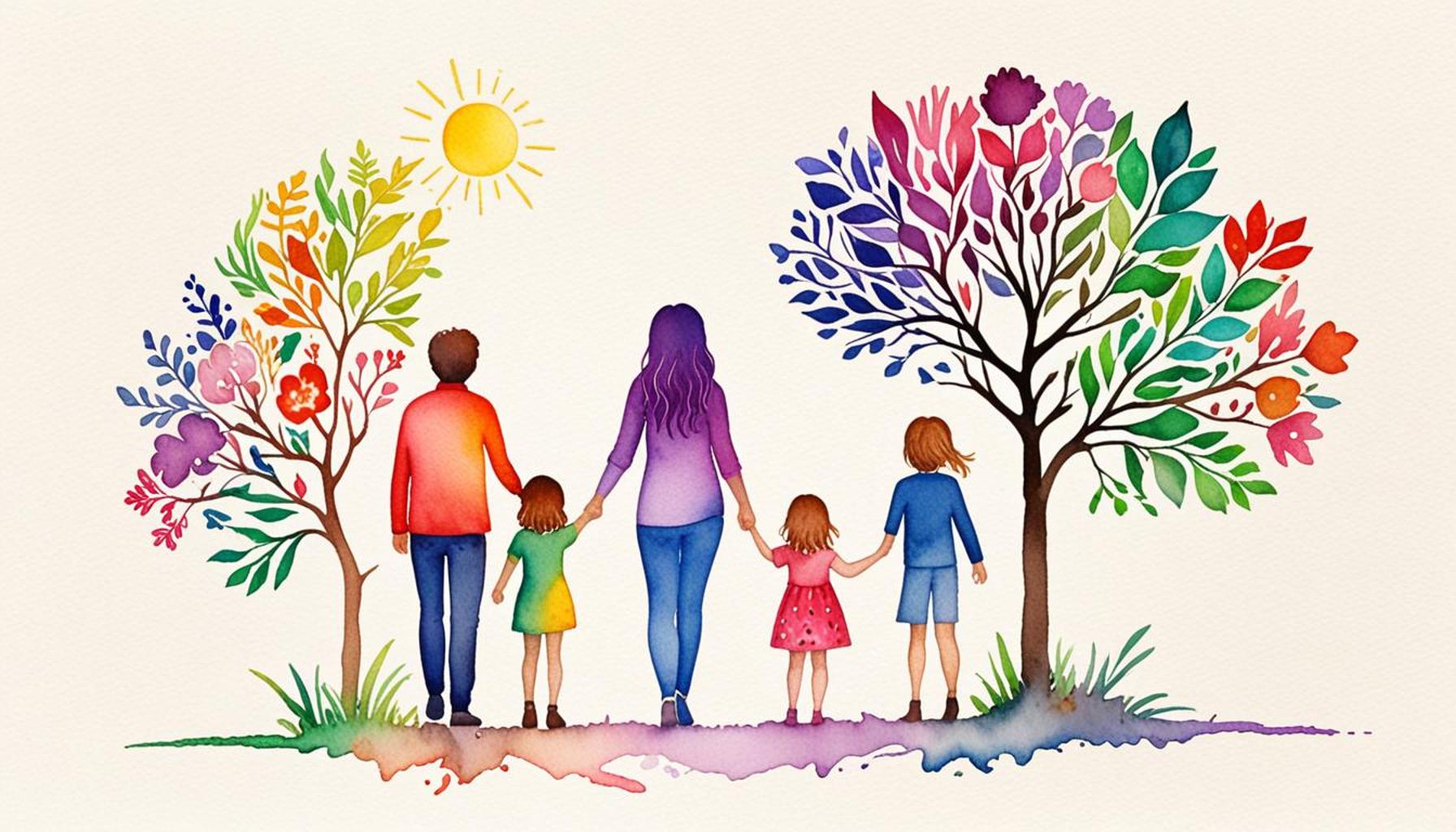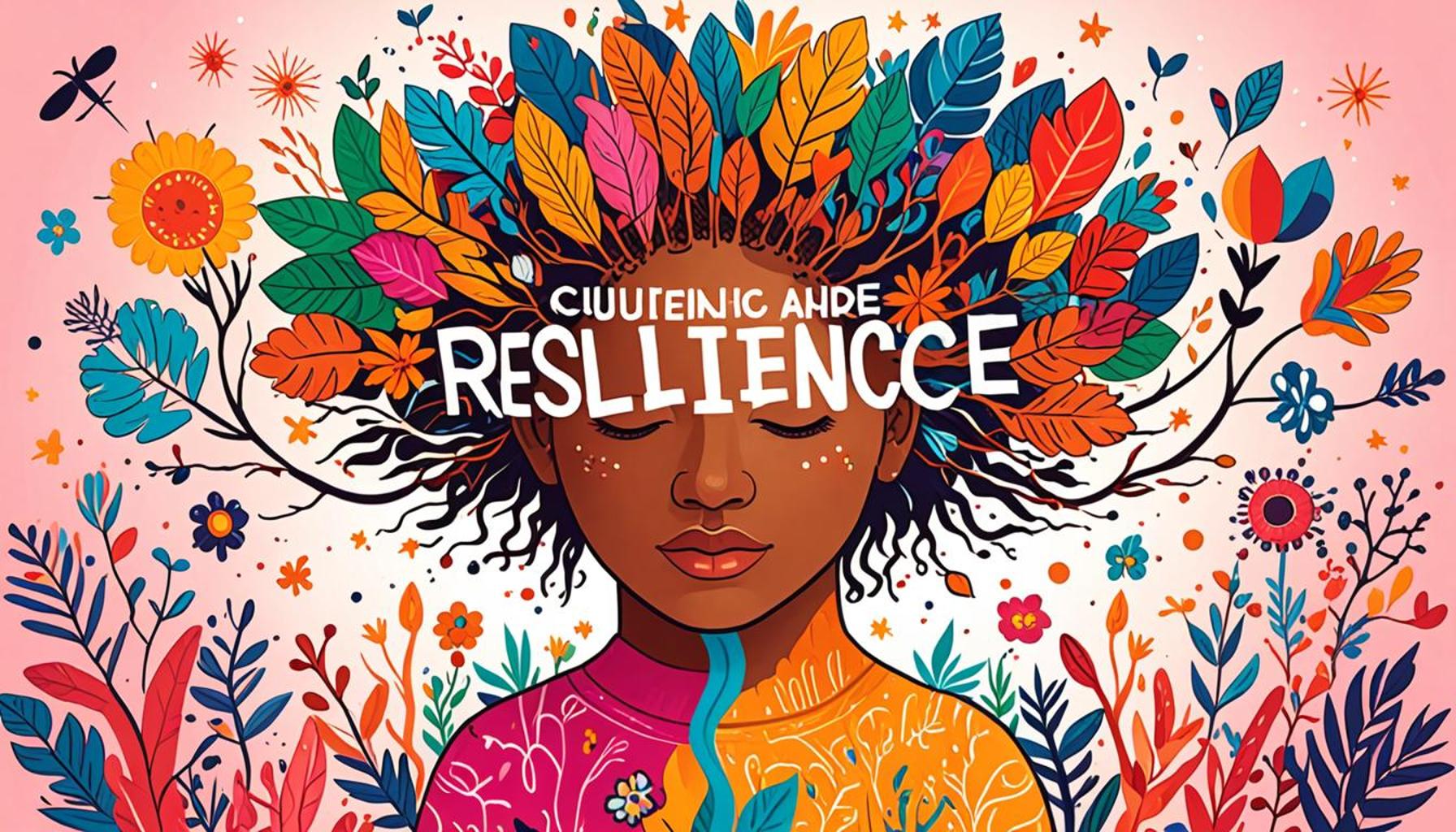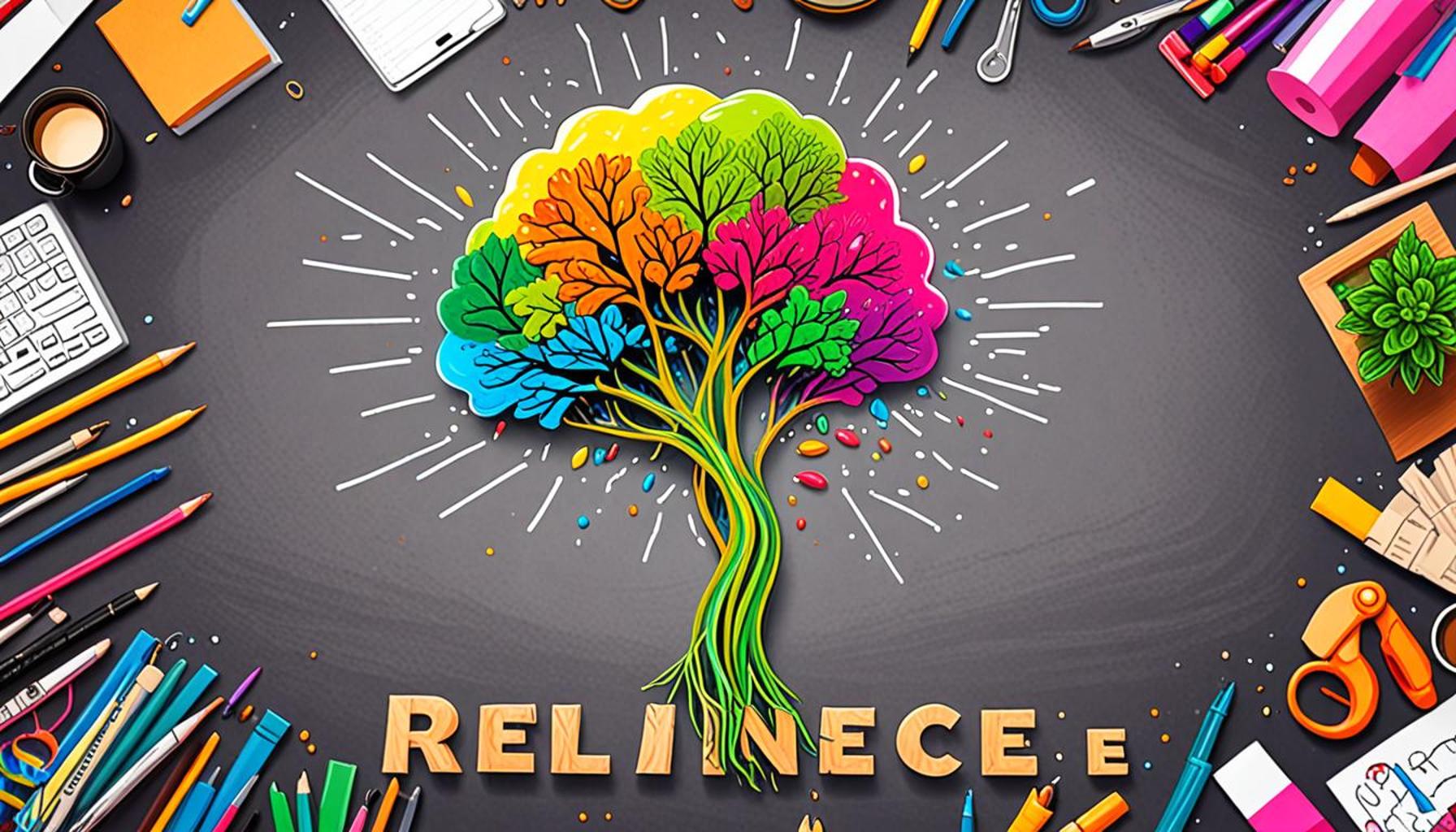The Influence of Family Resilience on the Development of a Growth Mindset in New Generations

The Interplay of Family Dynamics and Mindset Development
The evolution of family dynamics plays a crucial role in shaping the attitudes and resilience of children, especially in the context of Nigeria’s diverse socio-economic landscape. Families serve as primary support systems, and their ability to adapt to changing circumstances can directly influence the development of a growth mindset among younger generations. A focus on how families respond to challenges can unveil a profound understanding of resilience, and consequently, create pathways for children to thrive despite adversity.
Family resilience is not merely about enduring hardships; it encompasses a proactive approach to fostering emotional and psychological health within a unit. Effective communication trends high in resilient families, where dialogues about challenges are open and constructive. For instance, in families where parents encourage their children to express their feelings about societal pressures or academic stress, children often develop healthier coping mechanisms. This transparency can lead to enhanced emotional intelligence, enabling them to navigate complex situations with greater ease.
- Supportive relationships within families can significantly impact self-esteem. When parents actively promote a child’s interests and ambitions—be it through sports, academics, or artistic pursuits—it nurtures a sense of belonging and confidence, which is essential for cultivating a growth mindset.
- Shared values and beliefs also play a key role, especially in culturally rich environments like Nigeria. Many families emphasize the value of hard work and perseverance, teaching children that setbacks are opportunities for growth rather than signs of failure. This belief system is often woven into the fabric of traditional narratives and folklore that highlight resilience as a noble trait.
On the other hand, embracing a growth mindset presents children with a framework to view their abilities as malleable. As they grow up, learning to approach tasks with a willingness to tackle challenges fosters resilience against failure. This sentiment can be exemplified through the educational journeys many Nigerian students face—often inundated with challenges like economic instability or limited resources. Those who believe in their capacity to improve often take these hurdles as stepping stones, striving for excellence despite the odds.
- Learning from criticism also cultivates growth. Children who receive constructive feedback from parents and caregivers are more likely to develop a positive response to adversity and rejection, using these experiences to refine their skills or approaches in future endeavors.
- A focus on effort and persistence rather than innate talent underpins the belief that hard work leads to achievement. Many Nigerian families exemplify this through narratives of personal sacrifices made for educational advancement, reinforcing the idea that success is accessible through diligence.
Exploring the intersection of family resilience and growth mindset illuminates potential strategies for empowering future generations. By fostering environments that prioritize emotional connection, open dialogue, and a culture of perseverance, families can significantly bolster not only individual perspectives but also societal progress as a whole. As Nigeria continues to navigate its socio-economic challenges, the role of resilient families stands more critical than ever in shaping a future filled with promise and opportunity.
ADDITIONAL INSIGHTS: Expand your understanding here

Building Blocks of Resilience and Mindset
The foundation of family resilience intricately intertwines with the development of a growth mindset in children, particularly within the multifaceted layers of Nigerian society. As families navigate the complexities of life, characterized by economic fluctuations and cultural expectations, their responses to challenges can shape how children perceive their own potential and abilities. Notably, resilient families often cultivate environments where children feel empowered to learn and grow from their experiences.
One key aspect of fostering resilience is the establishment of open lines of communication. When families engage in conversations about challenges, they not only validate children’s feelings but also equip them with coping strategies. For instance, Nigerian parents who discuss financial hardships openly are simultaneously teaching their children about resourcefulness and adaptability. This dialogue encourages a mindset that embraces change as an opportunity for growth rather than a setback.
- Active involvement of parents in children’s activities can significantly enhance their sense of self-efficacy. Whether it’s through participating in school events or sports, parental engagement reinforces the idea that hard work and effort are valued and recognized.
- Role modeling is another crucial element. Parents who demonstrate resilience in the face of difficulties, sharing stories of perseverance and triumph, inspire children to adopt similar attitudes. For example, many fathers and mothers in Nigeria recount their journeys of overcoming educational barriers, instilling a belief in the necessity and power of persistence.
- Support systems within the family unit, including extended family and community ties, bolster resilience. These networks provide emotional and practical support, which can be vital during challenging times. Children raised in such environments learn that seeking help is a strength, not a weakness.
Moreover, a growth mindset begins to blossom when children are encouraged to take risks and view failure as a stepping stone. In Nigeria’s competitive academic landscape, where success often feels like a distant goal, the significance of familial encouragement cannot be overstated. Families that emphasize effort over innate talent allow children to forge pathways to success, reinforcing the idea that abilities can be developed with dedication and hard work.
Nurturing a growth mindset also entails celebrating small victories. Families that recognize and appreciate every step toward progress, regardless of how minor, foster an environment rich in positive reinforcement. For example, a child who improves in their studies or sports receives praise from family members, which catalyzes further effort and a desire to improve. This ongoing validation plays a critical role in solidifying the belief that persistence pays off, regardless of the challenges faced.
The dynamic interaction between family resilience and the development of a growth mindset serves as a testament to the powerful influence of familial relationships on individual growth. As Nigerian families continue to adapt to societal changes, the capacity to instill resilience in children can set the stage for a generation that not only perseveres but thrives in the face of adversity.
| Advantage | Details |
|---|---|
| Enhanced Problem-Solving Skills | Family resilience teaches children to tackle challenges, boosting their problem-solving capabilities. |
| Increased Emotional Intelligence | Through family support, children learn to express and manage emotions, fostering emotional intelligence for growth. |
| Positive Coping Mechanisms | Resilient families model healthy responses to stress, equipping children with coping strategies for adversity. |
| Role Modeling | Children observe and emulate resilient behaviors from parents, cultivating a growth mindset from an early age. |
The impact of family resilience extends beyond immediate benefits, weaving a narrative of growth that influences a child’s development in lasting ways. The dynamic interactions within resilient family units develop essential life skills that promote mental health. This interconnectedness sets the stage for future generations to adapt positively to life’s challenges. For instance, cultivating a culture of support is integral; children given a safe space to express their thoughts and feelings are more likely to build their emotional resilience.Moreover, when faced with setbacks, resilient families impart the wisdom of perseverance. This principle is crucial in fostering the belief that intelligence and abilities can be developed, hence nurturing a growth mindset. Each experience shared within the family unit forms the bedrock of confidence, laying the groundwork for children to face future adversities head-on. Such resilience ultimately enhances their capacity to thrive in various aspects of life, from academics to personal relationships.
SEE ALSO: Click here to read another article
Intergenerational Lessons of Resilience
As families in Nigeria face a range of adversities, the lessons learned within these intimate settings can resonate through generations, creating a profound impact on the formation of a growth mindset in children. Historical narratives within families serve as powerful tools for molding children’s perspectives towards overcoming challenges. For instance, many parents share stories of their parents or grandparents persevering through the harsh realities of colonialism or civil strife. These anecdotes do more than just honor the past; they become touchstones for younger generations, instilling a sense of continuity and the belief that obstacles can be surmounted with determination and creativity.
Moreover, the practice of storytelling transcends mere communication; it actively reinforces a resilient identity within children. In many Nigerian households, children are not just passive listeners; they are encouraged to ask questions and engage with these stories. This interactive engagement fosters critical thinking and reflection, laying the groundwork for the development of problem-solving skills—hallmarks of a robust growth mindset.
- Social challenges also play a vital role in shaping family resilience and a growth mindset. Families that face social stigma or discrimination often develop a collective identity that binds them together. By confronting societal issues, they teach their children the importance of advocating for change while maintaining their personal integrity. For example, families that have had to navigate economic hardships due to systemic inequality often emphasize education as a pathway to empowerment, nurturing the idea that hard work can lead to success despite external barriers.
- The role of spirituality within Nigerian families is also notable in fostering resilience. Many families rely on their faith to navigate challenges, teaching their children to view difficulties as testaments of character. This perspective instills hope and encourages children to trust in their abilities to overcome obstacles, reinforcing their belief in personal growth and development.
- Community dynamics enhance family resilience as well. In Nigeria, the concept of ‘it takes a village’ remains integral. Children benefit from diverse support systems that extend beyond immediate family. This network provides a safety net, allowing them to experiment and learn from failures without fear of harsh judgment. The ability to bounce back from setbacks is cultivated, strengthening the communal mindset that success is achieved through combined efforts.
Investing in resilience not only benefits individual families but also contributes to the broader tapestry of society. Children who grow up in environments rich in resilience and supportive of a growth mindset are likely to become innovators, problem solvers, and leaders in their communities. They carry forward the lessons of perseverance, shaping a new narrative that encourages cooperation, understanding, and progress.
As Nigerian families continue to address the evolving challenges posed by globalization, technology, and shifting cultural landscapes, the synthesis of resilience and a growth mindset remains essential. Raising children in an atmosphere that emphasizes adaptability, perseverance, and resourcefulness will undoubtedly prepare them for a future filled with uncertainties, enabling them to thrive. More so, it instills in them the understanding that their abilities are not fixed but can evolve through dedication and effort, setting the stage for a generation equipped to navigate life’s complexities with confidence.
SEE ALSO: Click here to read another article
Conclusion: Fostering a Growth Mindset through Family Resilience
In navigating the myriad challenges that come with life in Nigeria, the role of family resilience in shaping the next generation’s growth mindset cannot be overstated. As parents share their unique experiences and tales of survival against the backdrop of adversity, they instill vital lessons that resonate deeply within children. These narratives not only connect young people to their heritage but also equip them with the tenacity needed to face their own hurdles.
Moreover, the active engagement fostered through storytelling and the collective heritage of overcoming societal challenges encourage critical thinking and adaptability—key attributes of a growth mindset. In many Nigerian households, this interactive and reflective approach nurtures a culture where children learn to view challenges as opportunities for growth rather than as insurmountable barriers. The inclusive networks formed within communities further enhance this resilience, showcasing the importance of collaboration and support in the journey toward success.
As we look to the future, it is crucial for Nigerian families to continue prioritizing resilience as a foundational principle. By creating environments that emphasize perseverance, resourcefulness, and advocacy, parents not only prepare their children to thrive in an ever-changing world but also promote a broader societal narrative that values education, integrity, and the potential for transformation. Ultimately, nurturing a growth mindset through family resilience paves the way for a generation poised to lead with confidence, compassion, and commitment to continuous improvement. It is through these interconnected relationships that we can expect to see the emergence of innovative thinkers and leaders who will drive positive change in their communities and beyond.


